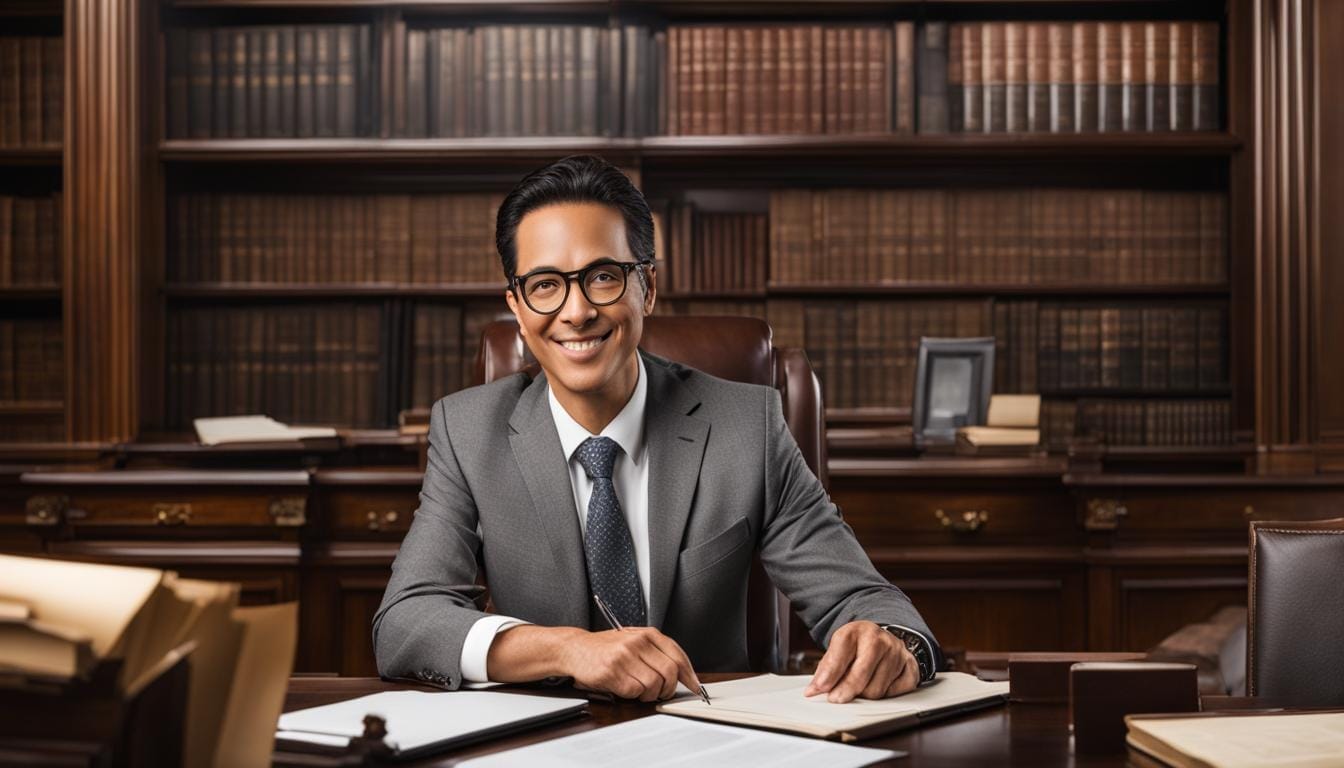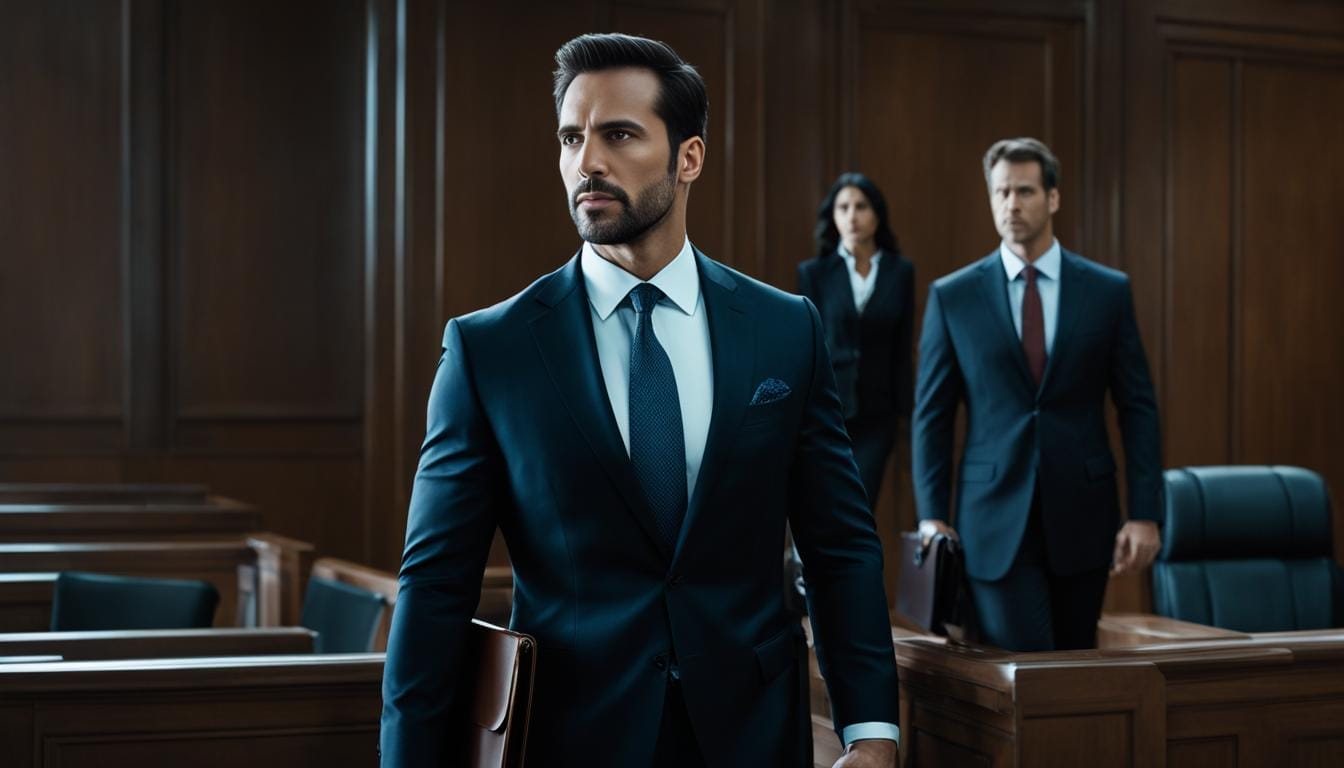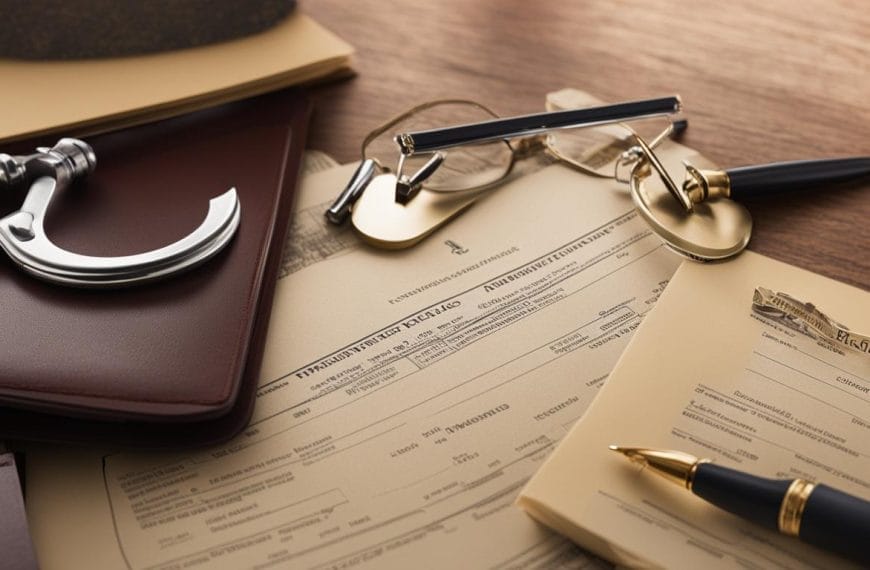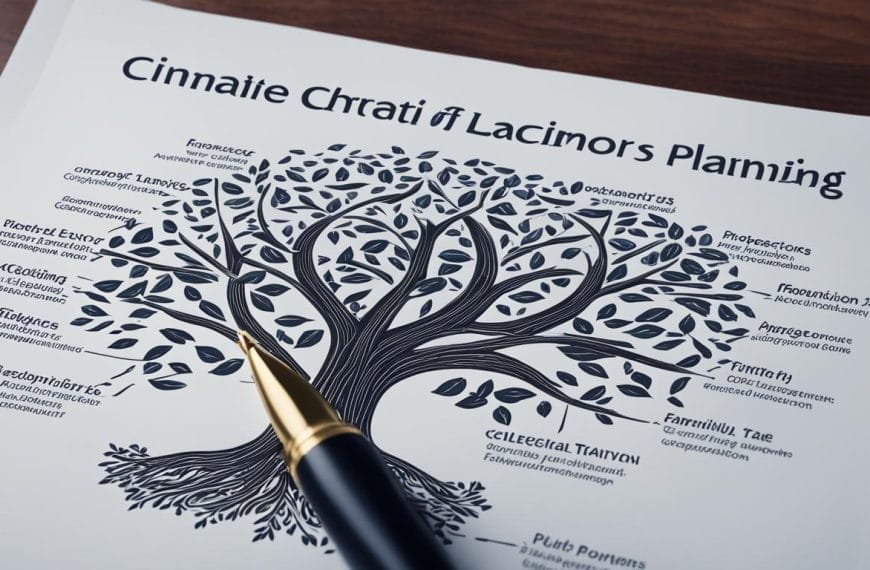Seeking the guidance of an estate planning attorney is crucial when it comes to protecting your assets and ensuring a smooth transition of your estate. However, finding the right lawyer can be a daunting task. That’s why it’s important to ask the right questions before making your decision. Here are some key questions to ask your estate planning attorney:
1. What experience do you have in estate planning?
2. What type of legal advice do you offer regarding estate plans, wills, and trusts?
3. Can you guide me through the probate process and asset protection?
4. How can you help me with power of attorney?
Asking these questions will give you a better understanding of the attorney’s expertise and their ability to meet your specific estate planning needs. Remember, it’s your future and your financial security, so don’t hesitate to seek legal advice and ask the necessary questions to make informed decisions.
What to Consider When Choosing an Estate Planning Attorney
When it comes to selecting an estate planning attorney, there are important factors to consider to ensure you find the right professional to meet your needs. Evaluating their experience, primary focus, and opinions on key aspects of estate planning can help you make an informed decision.
Experience Matters
One of the first things to inquire about is the attorney’s experience in estate planning. A seasoned estate planning attorney will have a deep understanding of the complexities involved in developing an effective estate plan. Ask about the number of years they have been practicing in this field and whether they have successfully handled cases similar to yours.
Primary Focus in Estate Planning
It’s essential to understand the attorney’s primary focus in their practice. Some attorneys may specialize primarily in estate planning, while others may have a broader practice that includes other areas of law. If estate planning is their primary focus, they are likely to have a higher level of expertise and knowledge in this specific field.
Estate Tax Expertise
Inquire about the attorney’s experience with estate taxes, as this is a critical aspect of estate planning. If you have significant assets, understanding how they approach estate tax planning can provide insights into their ability to help you minimize tax liabilities. Ask specific questions about their strategies for estate tax reduction or avoidance.
Compensation Model
Discussing the attorney’s compensation model is also important. Some estate planning attorneys charge an hourly rate, while others may have a flat fee or work on a contingent basis. Understanding their fee structure and any additional costs involved will help you assess whether their services align with your financial expectations.
Opinion on Revocable Living Trusts
Revocable living trusts are a commonly used estate planning tool that provides flexibility and control over your assets. Ask the attorney about their opinion on revocable living trusts and whether they believe it would be suitable for your situation. Their response can give you insights into their approach to estate planning and their willingness to explore alternative options.
Choosing the right estate planning attorney is key to ensuring your assets are protected and your wishes are carried out according to your estate plan. By asking the right questions, you can make an informed decision and find an attorney who has the necessary experience, expertise, and alignment with your estate planning goals.
Understanding the Role of an Estate Planning Attorney
An estate planning attorney holds significant responsibilities in helping individuals create a comprehensive estate plan that aligns with their unique needs and goals. From drafting crucial legal documents to offering advice on tax strategies and financial changes, their expertise is invaluable.
The Responsibilities of an Estate Planning Attorney
When it comes to estate planning, an attorney’s role extends beyond mere document preparation. Their primary responsibilities include:
- Assisting clients in creating legally binding documents, such as wills, trusts, and powers of attorney.
- Ensuring that these documents reflect the client’s wishes and comply with relevant laws and regulations.
- Providing guidance on tax strategies to minimize tax liability and maximize wealth transfer to future generations.
- Advising clients on the implications of financial changes, such as marriage, divorce, or the sale of significant assets.
By understanding these responsibilities, individuals can appreciate the value an estate planning attorney brings to the table. With their expertise, clients can develop an effective estate plan that protects their assets and ensures their wishes are carried out.
| Responsibilities | Key Aspects |
|---|---|
| Legal Document Creation | – Drafting wills, trusts, and powers of attorney – Ensuring compliance with legal requirements |
| Tax Strategies | – Advising on tax planning techniques – Minimizing tax liability |
| Financial Changes | – Addressing implications of financial changes – Marriage, divorce, sale of assets |
Qualifications to Look for in an Estate Planning Attorney
When it comes to choosing an estate planning attorney, it’s essential to consider their qualifications and expertise. Here are some key factors to look for:
Experience:
An experienced estate planning attorney will have the knowledge and skills necessary to navigate complex legal matters. Look for attorneys with a proven track record in handling estate planning cases and a deep understanding of the relevant laws and regulations.
Specialization:
Consider whether the attorney specializes in estate planning. While general practice lawyers may offer estate planning services, working with a specialist can provide you with more focused and tailored advice.
References and Client Reviews:
Don’t hesitate to ask for references from previous clients or search for client reviews online. Hearing from others who have worked with the attorney can give you valuable insights into their professionalism, communication style, and overall satisfaction.
Continued Education:
Look for attorneys who prioritize staying up-to-date with the latest legal developments in estate planning. Continuing education and involvement in professional associations demonstrate a commitment to providing the best possible advice and guidance.
Professional Credentials:
Consider the attorney’s professional memberships, certifications, and affiliations. These credentials can indicate a commitment to ethical standards and ongoing professional development.
| Qualification | Description |
|---|---|
| Board Certification | Attorneys who are board-certified have demonstrated a high level of competency and expertise in their specific area of practice. |
| Bar Association Memberships | Membership in reputable bar associations can indicate an attorney’s commitment to maintaining professional standards and staying updated on legal changes. |
| Certifications | Specific certifications, such as Certified Estate Planning Specialist (CEPS), can demonstrate an attorney’s specialized expertise in estate planning. |
Choosing an estate planning attorney is an important decision that requires careful consideration of their qualifications, experience, specialization, and reputation. By doing your due diligence and conducting thorough research, you can find an attorney who is well-equipped to handle your estate planning needs.
Essential Questions to Ask Your Potential Estate-Planning Lawyer
When searching for an estate planning attorney, it is crucial to ask the right questions to ensure you find the best fit for your needs. By inquiring about their estate planning services, approach to estate tax, ability to handle updates, and communication methods, you can gain valuable insights and make an informed decision.
Consider asking the following questions:
- What is your experience in estate planning? It’s important to work with an attorney who has specialized knowledge and a proven track record in estate planning.
- How do you approach estate tax? Understanding their strategies for minimizing estate tax can help protect your assets and maximize the benefits passed on to your beneficiaries.
- How do you handle updates to the estate plan? Estate planning is an ongoing process, and it’s important to work with an attorney who will be available to review and update your plan as needed.
- What methods of communication do you prefer? Clear and open communication is crucial in any attorney-client relationship. Knowing their preferred methods of communication can help ensure effective collaboration.
By asking these essential questions, you can gauge an estate planning attorney’s expertise, approach, and compatibility with your needs. This will help you choose the right professional to assist you in designing a solid estate plan that protects your assets and ensures your wishes are carried out.
Exploring Additional Concerns with Your Estate Planning Attorney
While asking basic questions to your estate planning attorney is crucial, it’s also important to delve into additional concerns that are specific to your situation. By addressing these issues, you can ensure that your estate plan covers all necessary aspects and provides comprehensive protection for your assets and loved ones.
1. Disability Planning
One key concern to discuss with your estate planning attorney is disability planning. This involves establishing legal arrangements that will protect your interests and ensure that your needs are met in the event of incapacity. An experienced attorney can guide you through the process of creating documents such as a durable power of attorney and healthcare directives to address these concerns effectively.
2. Estate Tax Management
Estate tax management is another crucial aspect to consider when working with your estate planning attorney. They can help you navigate the complexities of estate tax laws and develop strategies to minimize tax liabilities. By collaborating with a knowledgeable professional, you can optimize your estate plan to preserve your wealth for future generations.
3. Creating a Comprehensive Plan
A comprehensive estate plan goes beyond drafting a will or establishing a trust. It addresses all aspects of your financial and personal affairs, ensuring that your wishes are carried out with clarity and precision. Your estate planning attorney can assist you in creating a comprehensive plan that covers important areas such as asset distribution, guardianship for minor children, charitable giving, and business succession planning.
By discussing these additional concerns with your estate planning attorney, you can work together to develop a complete and customized estate plan that provides peace of mind and protection for you and your loved ones.
The Importance of a Good Working Relationship with Your Estate Planning Attorney
When it comes to estate planning, establishing a strong working relationship with your estate planning attorney is paramount. Effective communication, rapport, and the ability to comfortably discuss personal matters are essential for a successful estate plan.
An estate planning attorney is not just a legal advisor, but also a trusted guide throughout the process. Open and transparent communication is crucial to ensure that your attorney understands your goals, desires, and unique circumstances. This allows them to tailor an estate plan that meets your specific needs.
Building rapport with your estate planning attorney fosters trust and confidence. When you have a comfortable working relationship, it becomes easier to discuss sensitive matters such as family dynamics, financial concerns, and end-of-life preferences. This level of trust ensures that your estate plan aligns with your values and provides peace of mind.
Remember, estate planning involves personal and emotional decisions. Having an attorney you feel comfortable with can make all the difference in navigating complex legal matters. So, take the time to find an estate planning attorney who not only possesses the necessary expertise but also makes you feel at ease, allowing you to openly address personal matters and achieve your estate planning goals.













